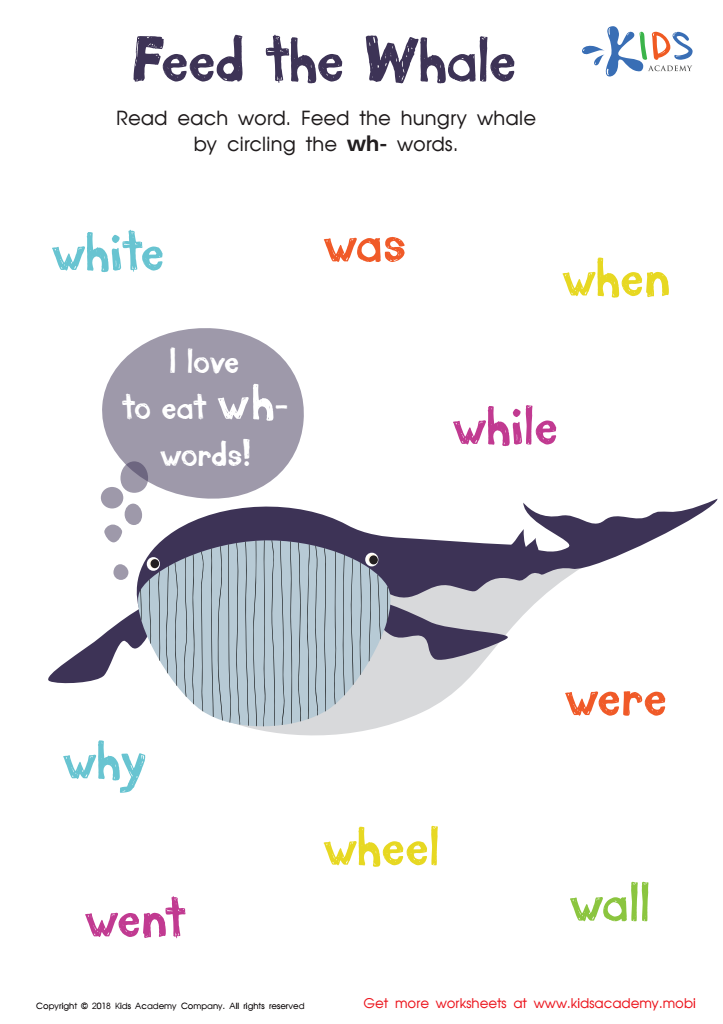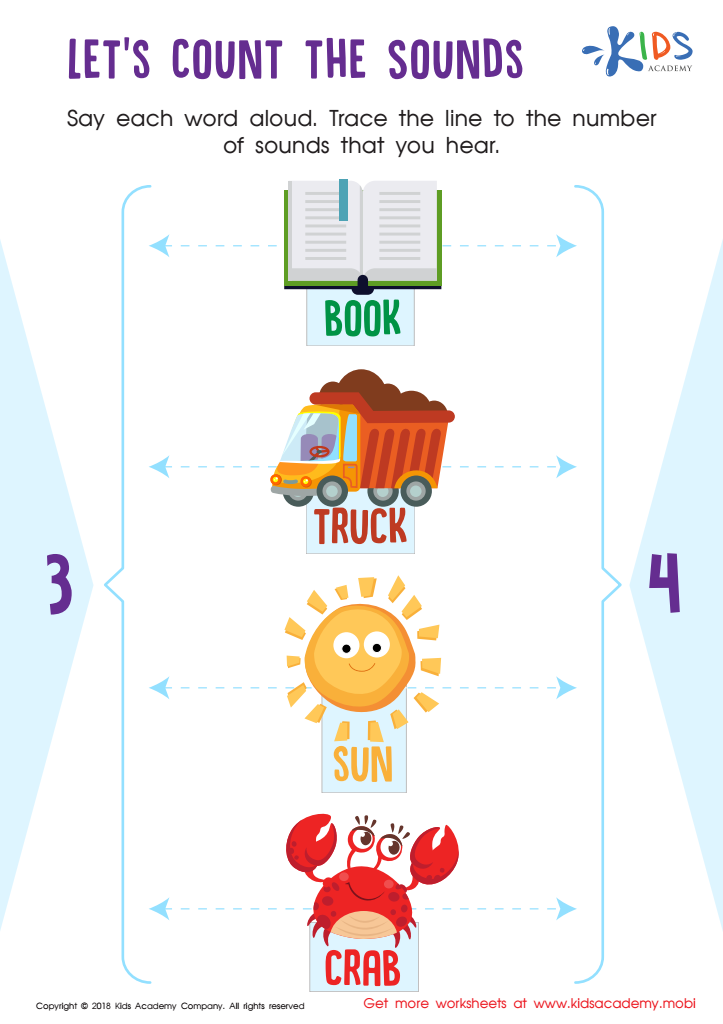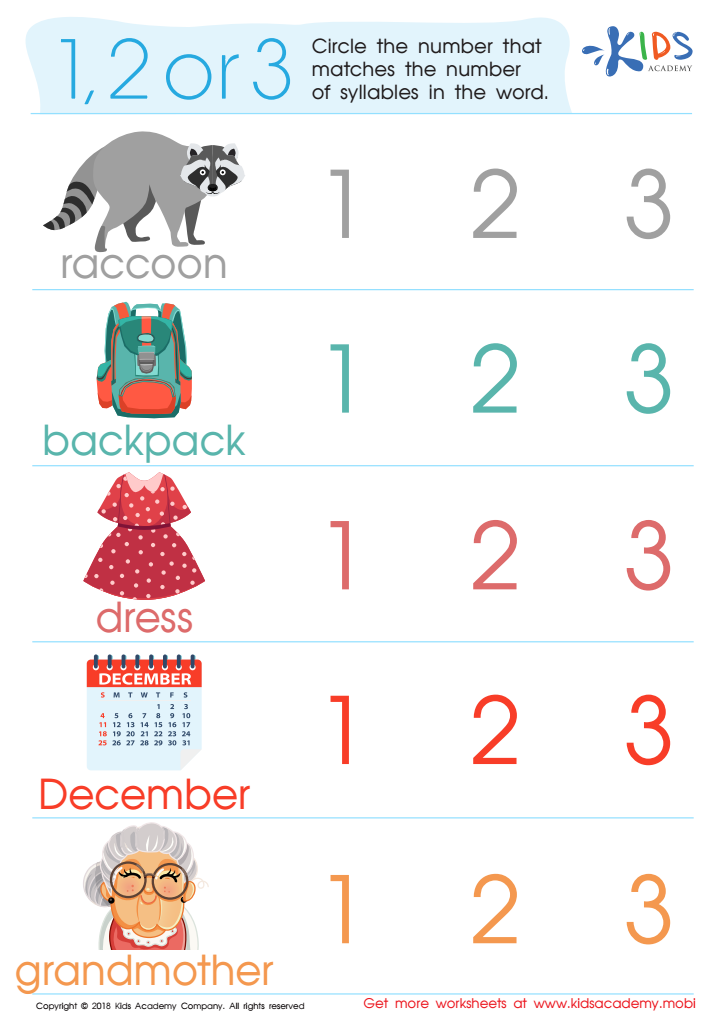Counting skills Normal Alphabet Worksheets for Ages 3-7
3 filtered results
-
From - To
Enhance your child's learning experience with our "Counting Skills Normal Alphabet Worksheets" designed specifically for ages 3-7. These engaging worksheets combine the foundational skills of recognizing the alphabet with the essential concept of counting. Children will enjoy fun and interactive activities that promote number recognition and letter identification, fostering a love for learning. Each worksheet is crafted to be age-appropriate, featuring colorful illustrations and easy-to-follow instructions that make counting and letter association enjoyable. Perfect for parents and educators alike, these resources support early childhood development, ensuring that little learners build confidence and competence in their counting and alphabet skills.


Feed the Whale Worksheet


Let's Count the Sounds Worksheet


1, 2 or 3? Worksheet
Counting skills and recognition of the normal alphabet are fundamental concepts that lay the foundation for a child’s early learning development. For children aged 3-7, mastering these skills is crucial for their cognitive and linguistic growth.
Firstly, counting skills foster mathematical understanding. When children learn to count, they develop their ability to recognize quantities, compare numbers, and solve simple math problems, essential skills in their future education. Engaging children in counting activities, like counting objects or singing counting songs, enhances their numerical fluency.
Secondly, understanding the normal alphabet builds critical language and literacy skills. Alphabet familiarity helps children recognize letters in words, paving the way for reading and writing readiness. Sounding out letters influences their ability to communicate effectively. It also nurtures their pre-reading skills, preparing them for phonics and vocabulary expansion.
Moreover, both counting and alphabet skills promote a sense of achievement and boost self-confidence. As children master these skills, they become more willing to participate in classroom activities, supporting social interaction and collaboration.
Overall, nurturing counting and alphabet skills during these formative years creates a strong educational foundation, ensuring children are well-prepared for the academic challenges ahead. Engaging parents and teachers in this learning process enhances children's developmental journey significantly.
 Assign to My Students
Assign to My Students














